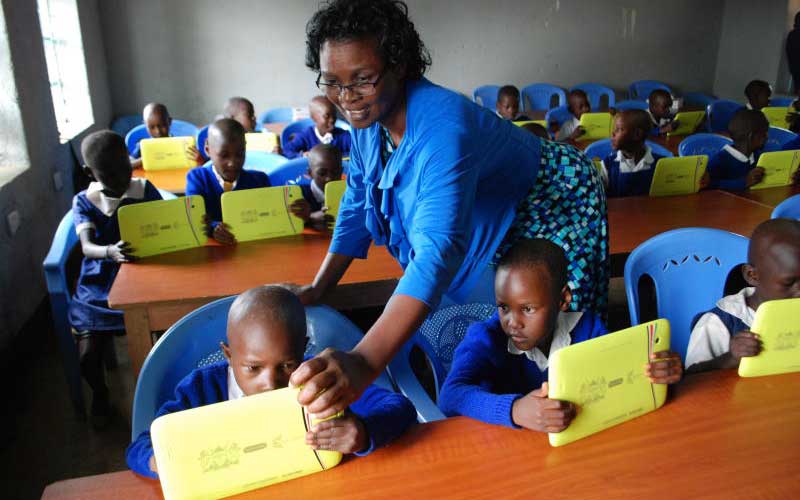×
The Standard e-Paper
Kenya’s Boldest Voice

Brendan Gitonga and Shakira Ntinyari, both in Class 5 at DEB Township Primary School in North Imenti (Meru), are all smiles as their teachers take them through a lesson using tablets, courtesy of the national government’s digital learning programme.
Though Brendan and Shakira have had fun learning with the tablets, the school’s deputy head teacher Tryphosa Kaberia said the 40 gadgets are not enough for lower primary pupils.







